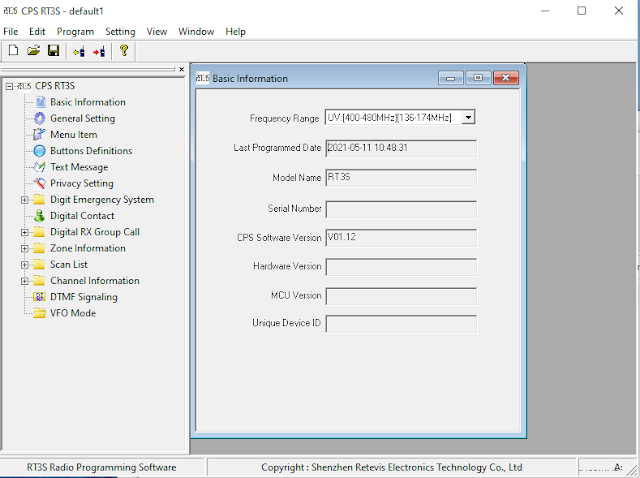Cloudlog
I have decided to change from using QRZ.com to Cloudlog as my primary logging software. The main reason for doing this is so that I own the database on my machine, rather than trusting it to someone else's server.
It is installed on a Raspberry Pi - and that is where the database lives. Although this machine isn't on 24 hours/day, it is normally turned on when I'm doing anything related to amateur radio. If I need logging from a remote location (e.g. if I'm operating whilst on holiday), then I can leave the Pi running at home.
I followed the installation instructions here: https://github.com/magicbug/Cloudlog/wiki/Installation - except that the resulting installation had a problem with php-xml until I changed from PHP 7.3 to PHP 7.4, i.e.:
sudo apt-get install php7.4 php7.4-curl php7.4-mysql php7.4-mbstring php7.4-xml php7.4-openssl
Why this should be is a mystery... but it worked for me!
Next, I set my router's port forwarding so that incoming Port 80 points to the Raspberry Pi. I already use a Dynamic DNS, and this means I can access my log from anywhere.
Having followed the installation instructions, including setting up cron jobs, I then created two station locations. One is my primary "Home (IO91RG)" location, for general logging. The other is for repeater contacts (including DMR and D-Star). In this way I can segregate unassisted QSOs -- which count towards DXCC and other awards -- from repeater and internet-assisted QSOs.
I am still maintaining a free QRZ.com log, so now my logging work-flow is a little complex. Here is the strategy:
- For everyday HF and VHF QSOs, I will log these in Cloudlog. Periodically, I will create an ADIF export, and load this to QRZ.com.
- For VHF/UHF contests, I log these in Minos. From Minos, I save a record of the contest in ADIF, which is then used as my contest entry and also imported into Cloudlog and QRZ.com.
- For everyday FT8, the log is generated automatically by WSJT-X. Periodically, I load this ADIF into Cloudlog and QRZ.com.
- For FT8 contests, I temporarily rename WSJT-X's existing log files to wsjtx_log_temp.adi and wsjtx_temp.log. Then WSJT-X will automatically generate new wsjtx_log.adi and wsjtx.log log files for the contest. At the end of the contest I rename these to wsjtx_log_[date].adi and wsjtx_[date].log, using the date of the contest. The .adi file forms my contest entry; it is stored for posterity, and it is uploaded to Cloudlog and QRZ.com. Then I rename wsjtx_log_temp.adi and wsjtx_temp.log back to wsjtx_log.adi and wsjtx.log.



Comments
Post a Comment